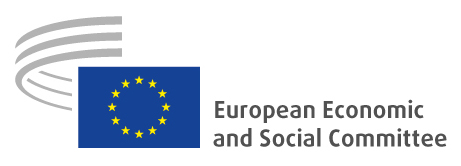 Homepage CASE
Homepage CASE
Selected values

Making the EESC the facilitator and guarantor of participatory democracy activities including structured dialogue with civil society organisations, and citizens’ panels
-
Date:
21 Oct 2022 - 20 Jun 2023
-
Project duration:
21.10.2022 - 20.06.2023
-

Agnieszka Kulesa
Specialist in Social Sciences
Agnieszka Kulesa has been working at CASE since 2018. She specialises in the labour market, international labour migration, and migration policies within and outside the European Union.
Projects from this author:
- Capacity building for local and regional authorities in the light of the Ukraine Facility (Pillar III)
-
FUTURE FOR ALL – Advancing Cross-Generational Collaboration through Futures Literacy (FFA)
The primary objective of the “FUTURE FOR ALL - Advancing Cross-Generational Collaboration through Futures Literacy (FFA)” project is to encourage active participation of citizens in the life of their respective neighborhoods with a specific emphasis on promoting intergenerational cooperation. The project addressed to elderly and youth residing in youth sociotheraphy centres (and the educators of the respective groups) identifies specific objectives: Face social problems between generations and contributing to lifelong learning Fight stereotypes, improve mutual knowledge and understanding Transfer of knowledge between Norway and Poland, and exchange of experience in applying futures thinking tools in working with intergenerational group Equip seniors and (socially maladjusted) youth with Futures Literacy tools to help them achieve developmental goals for their life stage Raise awareness of the local environment and a sense of responsibility, and agency to improve it To achieve these goals, the project intend to leverage the innovative approach of Futures Literacy to empower and engage the two crucial demographics. Futures Literacy is a concept and methodology developed by the UNESCO that presents an altered perspective on how to perceive and engage with the future (UNESCO, n.a.). It is a cognitive skill and a framework designed to enhance one’s capacity to comprehend, navigate and shape the complex and uncertain nature of the future. Apart from Futures Literacy approach the project will use additional activities designed to address key issues and encourage intergenerational collaboration such as: anti-stereotype and integrational workshops to provide a platform for both generations to openly discuss and challenge stereotypes that may hinder effective collaboration and understanding Urban Game Design: The elderly will take the lead in designing an urban game for the youth, offering them an opportunity to explore and connect with the city they know from a different perspective Planting activity: A shared activity of planting flowers will be organised to foster active citizenship and environmental awareness among the groups. Intergenerational trip: Organisation of a day trip to a museum or a concert chosen by either the elderly or the youth hold immense potential for interesting experiences among the participants The activities planned in the project support intergenerational cooperation, leverage the strengths of different age groups, creating a synergy that is particularly relevant in the context of modern world. By promoting understanding, collaboration, and mutual support among generations we can collectively adapt to and address the complex challenges of today’s rapidly changing world. The project will also strengthen bilateral cooperation between Poland and Norway in the area of building social capital in local communities. It will be achieved by a Polish and a Norwegian organisation that will combine their experiences in supporting active citizenship in their various environments and by using their different areas of expertise. Funding: Fund for Bilateral Relations, hereinafter referred to as the “FBR” the European Economic Area Financial Mechanism 2014-2021 and Norwegian Financial Mechanism 2014-2021 Project Leader: CASE Project Partner: Fremtenkt
-
Study on affordable sustainable housing in the EU
The study will contribute to the reflection on possible policy solutions to affordable sustainable housing in the EU, by examining a number of initiatives taken at (sub)national level innovating in the field of housing and determining how these could be relevant in a European context. The current challenges surrounding the availability of affordable and … Continued
-

Jan Bazyli Klakla
Dr. Jan Bazyli Klakla holds doctorates in law and sociology from the Jagiellonian University in Krakow, where he also completed studies in law, sociology, and cultural studies, alongside postgraduate studies in international migration at the University of Warsaw. He is currently a Director of Migration, Social Policy, and Development Cooperation at CASE – Center for Social and Economic Research in Warsaw, and a post-doctoral researcher at the Center for Legal Education and Social Theory at the University of Wrocław. Dr. Klakla has been involved in and has led numerous national and European research projects, including those funded by Horizon Europe, Norway Grants, and Polish National Science Center. His work also includes providing consulting and expert services to key European institutions such as the Committee of the Regions, the European Economic and Social Committee, and CEDEFOP (European Centre for the Development of Vocational Training). He has served as an expert in the “Safe Krakow - Security Strategy for Krakow” program. Dr. Klakla is the editor of Law and Culture. Reconceptualization and Case Studies (Springer Nature, 2021) and the author of Law and Acculturation. Conceptualisation and Empirical Case Study: Slavic Migrants in Poland (Palgrave Macmillan, 2024) and Studying in Times of Crisis. Acculturation and Adaptation of Ukrainian Students at Kraków Higher Education Institutions amidst the COVID-19 Pandemic and Russia's Aggression against Ukraine (Brill, 2025). In recognition of his scholarly contributions, he was awarded first prize in the competition of the Association of the Philosophy of Law and Social Philosophy (IVR) – Polish Section for the best doctoral dissertation in the theory and philosophy of law. His research interests span migration, sociology of law, educational research, public policy analysis, customary law, and the methodology of social sciences.
Projects from this author:
-
Wealth taxation, including net-wealth, capital and exit taxes
The study aims to provide further information regarding the uptake and economic consequences of introducing wealth-related taxes. The purpose of the study is to shed further light firstly into recurrent wealth related taxes by (i) reviewing the conditions for the implementation of a net wealth tax and its consequences, to provide a detailed literature review on recurrent capital taxes in the EU and analyse their economic consequences; and secondly (ii) to provide an overview of existing non-recurrent wealth related taxes, namely, by providing an overview of capital taxes, inheritance and gift taxes and the existing exit tax provisions in the field of personal income taxation (including relevant statutory references), and how these interrelate with and complement the legal framework of taxing net wealth and capital gains. The study builds on previous research work mapping wealth taxes and estimating the consequences of their introduction. It is structured along two parts comprised of two and three workstreams respectively, related to the topics outlined above. Part 1 – Recurrent taxation, Workstream 1 – Net wealth taxes Part 1 – Recurrent taxation, Workstream 2 – Capital taxes Part 2 – Non-recurrent taxation, Workstream 3 – Capital taxes Part 2 – Non-recurrent taxation, Workstream 4 – Inheritance and gift taxes Part 2 – Non-recurrent taxation, Workstream 5 – Exit taxes
-
Methodologies for Teamworking in Eco-Outwards Research (METEOR)
Key words: doctoral education, transversal skills, sustainable development, On December 1st, the METEOR project started, funded under the Horizon program. The project, led by CASE and implemented with the participation of 11 other partner organizations and one associated partner from Brazil, will last 36 months. The overall aim of METEOR is to improve the transversal skills of current postgraduates and early career researchers, with consequent benefits to research ecosystems, in line with Open Science and Responsible Research and Innovation (RRI) and focused on the UN Sustainable Development Goals. METEOR emphasizes the capacity to collaborate, work in groups and to develop international transdisciplinary projects oriented towards societal challenges and doctoral employment opportunities. METEOR has 6 specific objectives (SO) corresponding to its work package structure: SO1: Effective Management (WP1). SO2: Collect, analyse and report evidence supporting the need for an innovative doctoral training program (WP2). SO3: Develop a comprehensive transversal skills training program comprising a suite of 10 online training resources, using participatory methodologies co-created with the PhDs, ECRs, institutions and researchers, to enhance the skills specified in the Call (WP3). SO4: Implement the resources from WP3 and related activities in online and in-person delivery mode, with online and F2F events, and Peer Mentoring Groups consisting of 4-6 researchers collaborating for 15 months, with a target of 300 +/- individuals in 50 groups, preparing 50+ proposals based on UN SDGs and focused on impact (WP4). SO5: Create policy and exploitation routes for increasing the scope of doctoral training at local and national levels (WP5). SO6: Communicate and disseminate METEOR activities and results to a wider audience and ensure project’s continuity beyond the funded period (WP6). METEOR activities will benefit doctoral candidates (employment prospects/ earnings), institutions (recruiting PhD candidates, better supervision, more impactful research), industry/public sector (employees with high level research and transversal skills) and society generally (more research focused on challenges). Grant: This project has received funding from Horizon Europe – the Framework Programme for Research and Innovation (2021-2027) call: HORIZON-CL2-2024-TRANSFORMATIONS-01 under grant agreement No 101178320 — METEOR. Project leader: CASE - CENTRUM ANALIZ SPOLECZNO- EKONOMICZNYCH- FUNDACJA NAUKOWA (CASE) Partners: NORD UNIVERSITET (NU), THE OPEN UNIVERSITY (OU), UNIVERSITA DEGLI STUDI DI VERONA, (UNIVR), EUROPEAN UNIVERSITY - CYPRUS LTD (EUC), JYVASKYLAN YLIOPISTO (JYU), KASTAMONU UNIVERSITESI (KU), ILIA STATE UNIVERSITY (ISU), CEEI BURGOS (ES), HACETTEPE UNIVERSITESI (HU), ROSKILDE UNIVERSITET (RUC), SYNYO GmbH (SYNYO), State University of Bahia (UNEB, associated partner)
-
Mapping of EU Member State Legal Pathways for Labour Migration and Mobility (Phase II)
The Migration Partnership Facility (MPF) is an EU-funded programme that is implemented by ICMPD. The MPF supports the preparation and implementation of partnership initiatives supporting more effective migration management and dialogue by providing targeted, flexible and tailor-made assistance (mostly through grants) to the EU’s priority countries covered by various funding instruments included under the MPF. … Continued
-
Wealth taxation, including net-wealth, capital and exit taxes
-

Karolina Zubel
Environment, Energy and Climate Change Director
Karolina Zubel holds an MSc from the London School of Economics and Political Science and BA from the University of Warsaw and Sciences Po Paris. Currently, she is a PhD student at the Warsaw School of Economics, focusing her research endeavours on smart cities developments. Her work has been at the intersection of sustainability, low-carbon … <a href="https://case.dev10.pro/project/making-the-eesc-the-facilitator-and-guarantor-of-participatory-democracy-activities-including-structured-dialogue-with-civil-society-organisations-and-citizens-panels/">Continued</a>
Projects from this author:
-
Local and regional success stories of investing in disaster resilience
The aim of the study is to collect, map and share good practices, examples and success stories of investing in disaster resilience (including but not limited to in response to past disasters and the lessons learned from them) at local and regional level. The study focuses on collecting evidence on initiatives, good practice examples and measures taken by the NAT commission members to improve disaster resilience. The study will be built on interviews with NAT commission members based on a questionnaire. The study will also draw conclusions on the benefits of investing in disaster resilience and make some recommendations to local and regional authorities for moving forward based on the success stories collected from the members demonstrating that smart investment at local and regional level can make a difference in disaster risk reduction. The focus will be mainly, but not exclusively, on extreme weather events and climate-related disasters, given their growing frequency, intensity and impact. The study will contribute to knowledge sharing and exchange of good practices, by collecting and sharing success stories from and by members who have invested in reducing vulnerabilities and strengthening disaster resilience at local and regional level. As a repository of local and regional good practice examples, initiatives and measures relating to disaster preparedness and resilience, the aim of the study is also to feed into a bigger and longer-term project to map success stories of investing in disaster resilience on the ground.
- Cancer: repository of regional prevention and detection policies
-
Contribution of Mediterranean cities and regions to building water resilience
The world is currently facing a water crisis driven by overdemand, mismanagement and the impacts of the triple crisis of climate change, biodiversity loss and pollution. Alarmingly, 40% of the global population resides in regions confronting water scarcity. In the southern Mediterranean, particularly within the MENA region, the situation is even more dire. This area … Continued
-
Local and regional success stories of investing in disaster resilience
-

Magdalena Wiśniewska
Magdalena Wiśniewska is responsible for managing research projects at CASE. She holds MA in International Relations from the Nicolaus Copernicus University in Toruń and MA in Finance & Accounting from Warsaw School of Economics. During her career she gathered an extensive experience both in the public and private sector. She worked among others for Office … <a href="https://case.dev10.pro/project/making-the-eesc-the-facilitator-and-guarantor-of-participatory-democracy-activities-including-structured-dialogue-with-civil-society-organisations-and-citizens-panels/">Continued</a>
Projects from this author:
-
Local and regional success stories of investing in disaster resilience
The aim of the study is to collect, map and share good practices, examples and success stories of investing in disaster resilience (including but not limited to in response to past disasters and the lessons learned from them) at local and regional level. The study focuses on collecting evidence on initiatives, good practice examples and measures taken by the NAT commission members to improve disaster resilience. The study will be built on interviews with NAT commission members based on a questionnaire. The study will also draw conclusions on the benefits of investing in disaster resilience and make some recommendations to local and regional authorities for moving forward based on the success stories collected from the members demonstrating that smart investment at local and regional level can make a difference in disaster risk reduction. The focus will be mainly, but not exclusively, on extreme weather events and climate-related disasters, given their growing frequency, intensity and impact. The study will contribute to knowledge sharing and exchange of good practices, by collecting and sharing success stories from and by members who have invested in reducing vulnerabilities and strengthening disaster resilience at local and regional level. As a repository of local and regional good practice examples, initiatives and measures relating to disaster preparedness and resilience, the aim of the study is also to feed into a bigger and longer-term project to map success stories of investing in disaster resilience on the ground.
-
VAT gap in Europe – report 2025
The study's primary objective is to collect and supply economic information from existing official economic and statistical databases, as well as to gather primary data from national authorities. The study will also conduct macroeconomic analysis for country-specific VAT compliance and policy gap estimations and the impact of the coronavirus pandemic. Moreover, the study will include up to five case studies on specific countries and/or topics, to be proposed by the contractor in their technical offer. Geographically, the study will cover all EU Member States, subject to quality checks for data reliability and robustness. This includes coverage of the United Kingdom during its time as an EU Member State. In addition, the study will test and implement, where possible, the inclusion of EU candidate countries and possible candidate countries, except for Türkiye. These countries include: • Albania, Montenegro, North Macedonia, and Serbia1 (candidate countries at the stage of accession negotiations); • Ukraine, Moldova, and Bosnia and Herzegovina (Candidate countries for which the Council has decided to open accession negotiations); • Georgia (candidate country); • Kosovo (potential candidate country). The study's temporal scope will cover primarily a 6-year period, comprising: • a comprehensive review and revision of ‘full estimates’ for the first four years, i.e., for 2019-2022; • a new ‘full estimate’ for the fifth year, i.e., for 2023; • provisional ‘fast estimates’ for the sixth year based on simplified methodology for 2024. In addition to the 6-year coverage, the study will provide a historical context by reporting on VAT compliance gaps from 2000 onwards, and VAT policy gap estimates, including its components, from 2016 onwards. This will provide a comprehensive timeline of these indicators. The study will also include a review of the economic and policy context, also including an outlook beyond this 6-year period.
-
Wealth taxation, including net-wealth, capital and exit taxes
The study aims to provide further information regarding the uptake and economic consequences of introducing wealth-related taxes. The purpose of the study is to shed further light firstly into recurrent wealth related taxes by (i) reviewing the conditions for the implementation of a net wealth tax and its consequences, to provide a detailed literature review on recurrent capital taxes in the EU and analyse their economic consequences; and secondly (ii) to provide an overview of existing non-recurrent wealth related taxes, namely, by providing an overview of capital taxes, inheritance and gift taxes and the existing exit tax provisions in the field of personal income taxation (including relevant statutory references), and how these interrelate with and complement the legal framework of taxing net wealth and capital gains. The study builds on previous research work mapping wealth taxes and estimating the consequences of their introduction. It is structured along two parts comprised of two and three workstreams respectively, related to the topics outlined above. Part 1 – Recurrent taxation, Workstream 1 – Net wealth taxes Part 1 – Recurrent taxation, Workstream 2 – Capital taxes Part 2 – Non-recurrent taxation, Workstream 3 – Capital taxes Part 2 – Non-recurrent taxation, Workstream 4 – Inheritance and gift taxes Part 2 – Non-recurrent taxation, Workstream 5 – Exit taxes
-
Local and regional success stories of investing in disaster resilience
